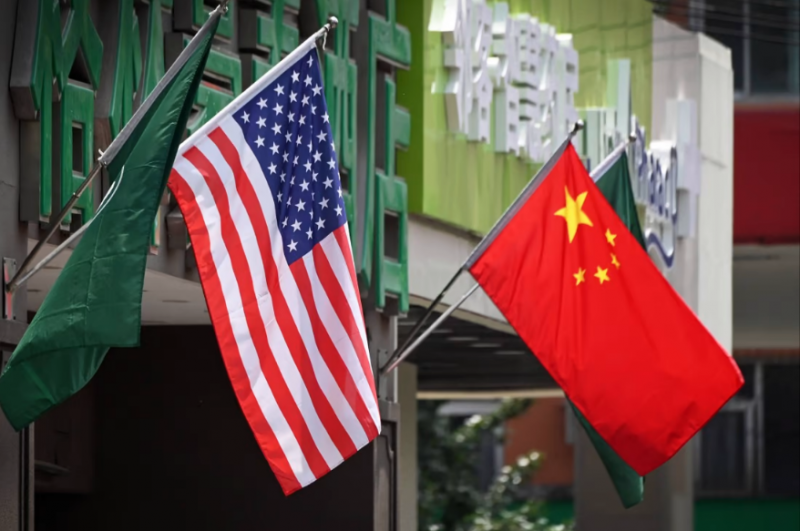
Beijing: Sources claim that as China's financial market regulator fine-tunes its new strategy to end the decade-long standoff with the US and prevent a mass expulsion of Chinese companies listed on the New York Stock Exchange, it is willing to give access to redacted auditing data to foreign inspectors.
The audit papers of Chinese companies may be inspected by foreign regulators, provided certain names and addresses of factories are redacted before the papers are released, according to the China Securities Regulatory Commission (CSRC), which is required by a 2019 law to work with foreign regulators on the transfer of securities-related documents.
According to the sources, confidential information like personal identification numbers must also be redacted in accordance with Chinese cybersecurity regulations.
The location of the audit work papers' examination remains a crucial unanswered question. The CSRC wants the US Public Companies Accounting Oversight Board (PCAOB) to send its inspectors to mainland China for the inspections, according to sources who spoke to the Post. The Financial Reporting Council (FRC), Hong Kong's audit regulator, is also involved in the discussions, the sources claimed, fueling rumours that US inspectors may also conduct the review in the city.
One of China's most recent efforts to ease some of the tensions that have caused Chinese stocks listed in mainland China, the US, and Hong Kong to decline is the tentative concessions, which are still the subject of heated debate.
As of June, there were 168 Chinese companies listed in the US with a combined market value of $1.5 trillion, and 15 Hong Kong and mainland accounting firms registered with the PCAOB were auditing these companies.
Due to the US audit regulator's inability to review their audit work, they risk being delisted as early as next year. A 2019 law in China declared audit papers to be state secrets and prohibited their export. However, the law requires the CSRC to set up procedures for working with offshore regulators.
They risk being removed from the list as early as next year because the US audit regulator was unable to evaluate their auditing efforts. A 2019 law declared audit documents to be state secrets in China and prohibited their export. However, according to the law, the CSRC is required to set up procedures for working with offshore regulators.
Vice-Premier Liu He of China and Chairman Yi Huiman of the CSRC have both expressed their commitment to finding solutions to settle the dispute with the US PCAOB in recent months – Liu in March and Yi in April.
Giving the PCAOB access to audit documents of Chinese-based companies after they are cleared by the Chinese finance ministry for state secrets or sensitive data like personal identification numbers is one potential solution, the Post reported in March.
According to sources, progress had been steady but slow. How relevant personal information and identification details—such as names of factories or personal data—are to audit paper trails is still up for debate. If the redacted data can still demonstrate its importance to the finances of the company under audit, compromises might be feasible, according to sources.
The plan demotes the CSRC from its position as the gatekeeper and collector of China's audit working papers for foreign regulators, a position it has held since 2016, to taking a back seat in the US-China auditing dispute. According to the sources, it also advances the PCAOB's goal of requiring "independent" audit reports from US-listed companies.
Since the beginning of March, the CSRC has briefed several of the biggest Chinese companies listed on the New York Stock Exchange, advising them to organise their audit working papers in preparation for the finance ministry's review, where international audit and data privacy standards will be applied, according to the sources.
By gradually adding companies to a list of those deemed to be subject to the Holding Foreign Companies Accountable Act, the US Securities and Exchanges Commission (SEC) has stepped up its campaign to drive Chinese-listed companies out of New York (HFCAA).
The law, which Donald Trump signed into law in the final weeks of his administration, went into effect last December and mandates that foreign companies listed in the US comply with audit inspection rules overseen by the PCAOB, or risk being kicked off the stock exchange after three years of non-compliance.
Since March, more than 163 Chinese companies with US listings have been added to the list, starting with HutchMed, the pharmaceutical division of business magnate Li Ka-principal shing's holding company, CK Hutchison Holdings. One of China's biggest technology companies, Alibaba Group Holding, which owns this newspaper, is also included on the list.
The Sarbanes-Oxley Act of 2002, which was passed to safeguard stock market investors from financial fraud after Enron's bookkeeping scandal nearly two decades ago drove the energy company into bankruptcy and caused Arthur Andersen to be dissolved, gave rise to the PCAOB.
In a number of jurisdictions, including Belgium, France, China, and Hong Kong, the PCAOB had complained that it was unable to conduct direct investigations or gather evidence. It wasn't until last April that two bilateral agreements with Belgium and France were renewed that the "obstacles" it faced in those nations were removed.
But China has been singled out for what the PCAOB refers to as "access challenges," and this complaint has gained traction in the wake of the highly publicised accounting fraud at Xiamen-based Luckin Coffee in 2020, whose shares were listed on the New York Stock Exchange.
China's second aircraft carrier Shandong going to start training in South China Sea
US eager to "manage differences" with China amid tensions over Taiwan visit
Xi Jinping hopes to lead China beyond Deng Xiaoping's "get rich" era